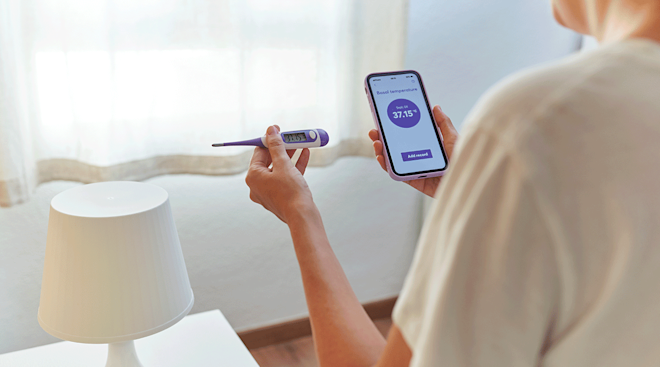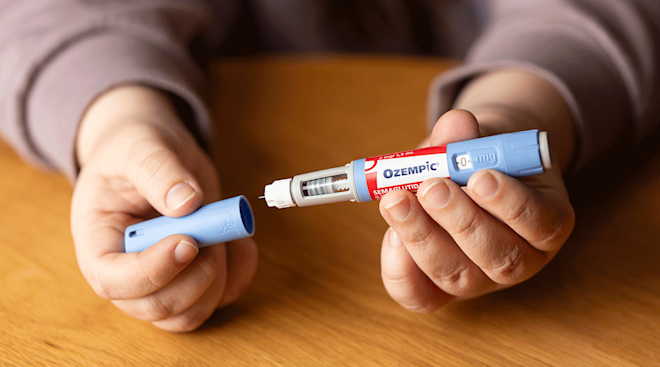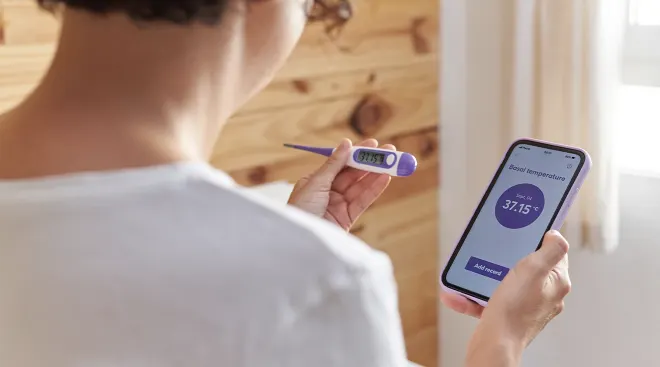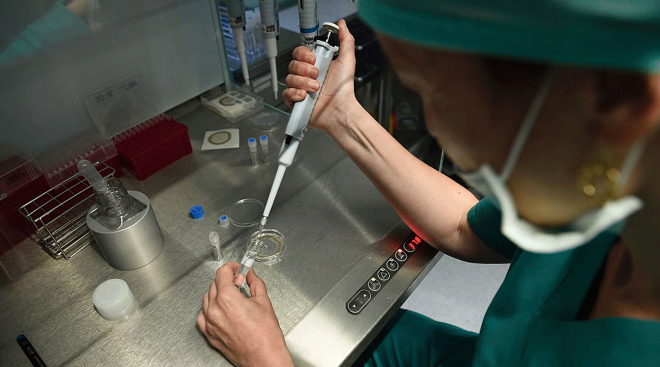What Happens at a Preconception Appointment?
If you’re hoping to get pregnant in the near future, it’s a good idea to prepare your body for the journey ahead. One of the first steps? Book yourself a preconception appointment—it’s a great way to start your pregnancy off on a healthy foot. Ahead, read about what to expect from your preconception checkup, how to prepare and what questions to ask your doctor.
A preconception checkup is an opportunity to get a holistic view of your own health if you’d like to start trying for a baby. At this appointment, you can “discuss your health history, lifestyle, medications, family history and any other factors that may influence your pregnancy,” explains Nisarg Patel, MBBS, MS, an ob-gyn in Ahmedabad, India. Your doctor will also perform some tests and screenings to assess your overall and reproductive health, giving you the chance to learn about any chronic conditions or medical problems that need to be treated before pregnancy, says Patel.
Abby Eblen, MD, a fertility and in vitro fertilization (IVF) specialist with the Nashville Fertility Center, says your doctor might also check whether your vaccinations are current, and might encourage you to start taking prenatal vitamins, including folic acid. They might also recommend lifestyle changes such as “[stopping smoking], achieving optimal weight, moderate daily exercise and eating a nutrient-rich diet,” she says.
You might choose to see an obstetrician, family physician, maternal-fetal medicine specialist, family nurse practitioner, women’s health nurse practitioner or midwife for your preconception checkup, notes March of Dimes.
In general, this appointment is similar to a regular annual checkup. If you have a medical condition like diabetes, high blood pressure, a heart condition or an autoimmune disorder, Eblen recommends seeing your primary-care physician to make sure you’re ready to become pregnant. “If your medical condition isn’t well controlled, it should be stabilized before conception,” she adds.
Here are some ways you can prepare for your preconception checkup:
- Make a list of medications you’re currently taking. Your provider will review your medications to make sure they’re safe to use during pregnancy, as well as let you know which ones you’ll need to stop taking well before you conceive, says Eblen.
- Know your medical history. Your doctor (especially if you’re meeting with a new one) will want to know about previous illnesses, surgeries and hospitalizations, as well as any allergies, says Patel. Be prepared to talk about your family history as well.
- Know your gynecological history. When was your last period and how regular are your cycles? Have you ever been pregnant before? Have you had an abortion or a miscarriage? Do you take birth control, and if so, what type? These are just some of the preconception checkup questions your provider might ask, notes Patel.
- Gather a list of questions for the doctor. We’ll dive deeper into this one later.
At your preconception visit, some physicians will perform a basic exam that mirrors an annual physical or well-check, while others might take a more detailed approach. “If you’re not up to date for your yearly checkup, then a breast and pelvic exam will be done,” says Eblen. She notes that your doctor might also perform a pap smear, which can be used as a screening test for cervical cancer. “If you’re 40 or older, it’s important to have a mammogram,” she adds.
Your physician might also order blood tests, which could include the following:
- Antibody titers. These tests check whether you’re immune to certain infections that could be harmful in pregnancy, such as rubella and chickenpox, says Ashley Wiltshire, MD, a reproductive endocrinology and infertility specialist and ob-gyn with the Columbia University Fertility Center. “If you’re non-immune, then the preconception visit would be the perfect time to get vaccinated, as some vaccines are contraindicated in pregnancy,” she says.
- Complete blood count to check blood type. Patel says your doctor could check your blood type and Rh factor—which is important to know before you’re pregnant, since a condition called Rh incompatibility can cause an immune reaction in some pregnant women.
- Genetic carrier screening. This screening is commonly offered to check future parents’ carrier status for a panel of genetic conditions to find out whether baby has a higher likelihood of inheriting a particular condition, says Wiltshire.
Does Fertility Testing Happen at the Preconception Appointment?
If you’ve struggled with your fertility, your provider might choose to do some fertility testing at your preconception appointment.
According to Patel, here are some of the fertility tests you might undergo as a part of your preconception counseling:
- Ovulation test. This test checks when and whether you ovulate by measuring the levels of hormones in your urine or blood.
- Basal body temperature. Your doctor might ask you to take your temperature each morning and chart the results to get a sense of your monthly cycle and when your fertile days are.
- Ovarian reserve. This test checks the quantity and quality of your eggs by measuring the levels of hormones such as follicle-stimulating hormone (FSH), anti-Mullerian hormone (AMH), estradiol and others.
- Tubal patency test. This test checks to see if your fallopian tubes are open and functional by injecting a dye or air into them and taking an X-ray or ultrasound.
- Uterine cavity test. During this test, a provider inserts a thin tube with a camera into your uterus to check for problems such as fibroids, polyps or adhesions.
Does Genetic Testing Happen at the Preconception Appointment?
During a routine preconception checkup, providers typically don’t perform genetic testing unless you have a family history of genetic or chromosomal disorders or birth defects, or you’re part of an ethnic group that is at a higher risk for certain genetic conditions, says Patel.
Patel shares a few of the more common genetic tests your doctor might order if you have a family history of genetic disorders.
- Carrier screening. This genetic test checks whether you or your partner carry any genes that could cause an autosomal recessive disorder, such as cystic fibrosis, sickle cell disease or Tay-Sachs disease.
- Chromosomal analysis. This common genetic test checks if you or your partner have any extra or missing chromosomes that could cause a chromosomal disorder in baby, such as Down syndrome, Turner syndrome or Klinefelter syndrome, among others.
- Preimplantation genetic diagnosis (PGD). If you’re doing IVF, this panel checks to see if your embryos have any genetic or chromosomal abnormalities before transferring them to your uterus.
Your preconception appointment is a chance to ask your doctor any questions you might have about embarking on your pregnancy journey. Whether you’d like to bring up concerns or fears, discuss your chances of getting pregnant or have any other health questions, now’s the time to ask away—and don’t worry, no question is off the table.
Here are some questions you might want to ask during your preconception counseling appointment, according to Patel.
- How long should I wait after stopping birth control before trying to conceive?
- How can I track my ovulation and find out my fertile window?
- How often and when should I have sex to increase my chances of getting pregnant?
- What are the symptoms of early pregnancy?
- What are the recommended vaccinations and supplements before and during pregnancy?
- How often and where will I have my prenatal checkups and tests?
- What are the signs and symptoms of labor?
Aside from your preconception visit, you might want to make appointments for specific health conditions and concerns if you need them—as well for routine checkups like a dental cleaning that you might not get to during pregnancy. (After all, dental issues are common in pregnant people, and the American College of Obstetricians and Gynecologists (ACOG) says dentist appointments are critical during pregnancy.)
Your preconception checkup is a great opportunity to make sure your health is in order and that you can create the best environment possible for a growing baby. So if you’re thinking of trying to conceive, give your doctor a call.
Please note: The Bump and the materials and information it contains are not intended to, and do not constitute, medical or other health advice or diagnosis and should not be used as such. You should always consult with a qualified physician or health professional about your specific circumstances.
Plus, more from The Bump:
Abby Eblen, MD, is a fertility and IVF specialist with the Nashville Fertility Center in Nashville, Tennessee. She is board-certified in obstetrics and gynecology and subspeciality-certified in reproductive endocrinology and infertility. She earned her medical degree from the University of Tennessee Health Science Center.
Nisarg Patel, MBBS, MS, is an ob-gyn and laparoscopic surgeon in Ahmedabad, India. He practices at the Nisha IVF Centre. He earned his MS in obstetrics and gynecology from the Pravara Institute of Medical Sciences in India.
Ashley Wiltshire, MD, is a reproductive endocrinology and infertility specialist and ob-gyn with the Columbia University Fertility Center. She earned her medical degree from the University of Connecticut School of Medicine.
March of Dimes, Your Checkup Before Pregnancy, September 2020
The American College of Obstetricians and Gynecologists, The Rh Factor: How It Can Affect Your Pregnancy, June 2022
The American College of Obstetricians and Gynecologists, Oral Health Care During Pregnancy and Through the Life Span, August 2013
Learn how we ensure the accuracy of our content through our editorial and medical review process.
Navigate forward to interact with the calendar and select a date. Press the question mark key to get the keyboard shortcuts for changing dates.




















































